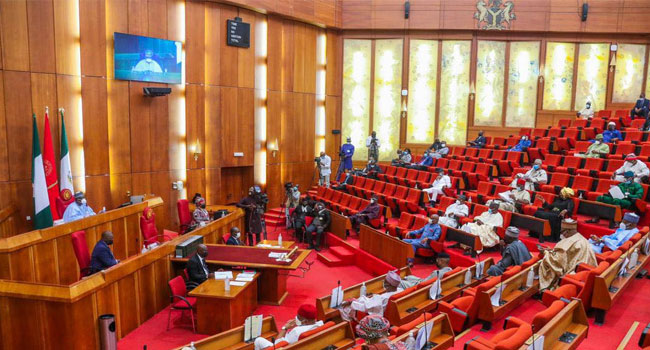What You Should Know About the New Electoral Act 2022

Lawyard is a legal media and services platform that provides…
The new Electoral Act 2022 (The ‘new Act’) was signed into law by President Mohammed Buhari on 25th February, 2022 to repeal the Electoral Act No. 6, 2010. The new Act addresses a number of issues affecting the electoral process in Nigeria for a long time and which have been said to be constituting a barrier to the transparency of electoral outcomes and results.
The general objective of the new Act is to give clarity to and engender effectiveness of the electoral process, ensure free and fair elections, guarantee the dignity of citizens, grant opportunity and justice to all political participants whether they are voters or candidates and ensure utmost transparency of the electoral process.
In this article, we will be looking at both the new provisions and the improvements introduced by the new Act.
What is new?
Some of the novel provisions of the new Act include:
- Legalization of the Smart Card Reader
Section 47 of the Act gives legislative backing to the use of Smart Card or any other technological device by the presiding officer for the accreditation, verification, confirmation or authentication of the particulars of an intending voter. The Act further provides that where a smart card reader or any other technological device deployed for accreditation of voters fails to function in any unit and a fresh card reader or technological device is not deployed, the election in that unit shall be cancelled and another election shall be scheduled within 24 hours.
- The introduction of Electronic Transmission of results through the National Electronic Register of Election Results
The new Act, by virtue of its Section 62, mandates the Commission to compile, maintain and update, on a continuous basis, a register of election results to be known as the National Electronic Register of Election Results which will be a distinct database or repository of polling unit results, including collated election results, of each election conducted by the Commission in the Federation.
- Disqualification of political appointees from electoral process
Section 84 (10) of the new Act provides that ‘no political appointee at any level shall be a voting delegate or be voted for at the Convention or Congress of any political party for the purpose of the nomination of candidates for any election’. The practical application of this section is that all serving political office holders such as ministers, commissioners, special advisers and others, must relinquish their position before they can qualify to participate in the electoral process; either as a candidate or a delegate. Also, with this provision, the President or governors are prohibited from making their appointees automatic delegates in an indirect primary election; a practice which has hitherto been the norm.
- Review of electoral results declared under duress
According to Section 65 of the new Act, INEC now has the power to, within seven days, to review a declaration and return the decision made by a returning officer where the Commission determines that the said declaration and return was not made voluntarily or was made under duress or contrary to the provisions of the law, regulations, guidelines and manual for the election. Such decision of the returning officer may also be reviewed by an election tribunal or court of competent jurisdiction in an election petition proceeding. This provision makes the use of coercive behavior counterproductive.
- Early commencement of Campaign season
Rather than the initial campaign period of 90 days before election day, Section 94 of the new Act now allows public campaigns to commence as early as 150 days before polling day and end 24 hours prior to the election day.
- Substitution of a candidate in the event of death
Section 34 of the new Act empowers the political party to conduct a fresh primary election where a nominated candidate dies after the time allotted for the delivery of nomination papers but before the commencement of the poll. It further provides that if it is an election into a legislative House, the election will start afresh and the political party whose candidate died may, if it intends to continue to participate in the election, conduct a fresh primary within 14 days of the death of its candidate and submit the name of a new candidate to the Commission to replace the dead candidate. However, where it is for Presidential or gubernatorial or Federal Capital Territory Area Council election, the running mate will continue with the election and nominate a new running mate. In every other instance, the political party must duly inform INEC who shall in turn, countermand the poll in which the deceased candidate was to participate and appoint some other convenient date for the election within 14 days.
- Merger of political parties
As stipulated in Section 81(1) of the new Act, any two or more registered political parties may merge on approval by the Commission following a formal request presented to the Commission by the political parties for that purpose. Political parties intending to merge shall each give to the Commission nine months’ notice of their intention to do so before a general election.
- Provision for voters with physical disabilities, special needs and vulnerable persons
Section 54 of the Act provides that persons with disabilities, special needs and vulnerable persons are to be assisted at the polling place by the provision of suitable means of communication, such as braille, large embossed print, electronic devices, sign language interpretation, or off-site voting in appropriate cases.
- Independent National Electoral Commission Fund
The new Act empowers INEC by providing for the establishment of the Independent National Electoral Commission Fund to ensure the Commission is funded well in advance of the election season – Section 3. Section 3(3) of the new Act further provides that the election funds due to the Commission for any general elections are to be released to the Commission not later than one year before the next general election.
- Over-voting redefined
Another notable provision is the issue of over-voting which had hitherto been determined by number of voters in the voters’ register for the area in question. Section 51(2) of the Electoral Act which stipulates that where the number of votes cast at an election in any polling unit exceeds the number of accredited voters in that polling unit, the Presiding officer must cancel the result of the election in that polling unit. Thereby making total number of accredited voters a determining factor in the validity of votes in an election.
- Ballot boxes and voting devices
According to Section 41(1) of the Electoral Act 2022, this provision stipulates that suitable boxes, electronic voting machine or any other voting device must be provided for the conduct of elections. Section 41(3) provides that Polling agents shall be entitled to be present at the distribution of the election materials, electronic voting machine and voting devices from the office to the polling booth.
- Neutrality of INEC personnel
The new Act mandates all staff, electoral officers, presiding officers, returning officers and security officials taking part in the conduct of an election to affirm or swear to an oath of loyalty and neutrality and indicate that they will not accept bribe or gratification from any person. A breach of this affirmation or Oath is considered a dereliction of duty punishable with a maximum fine of ₦500,000 or imprisonment for a term of 12 months or both.
- Early conduct of Party’s primaries and submission of list
Section 29 stipulates that parties must conduct primaries and submit the list of their candidates who have emerged from the primaries and who the party proposes to sponsor at the elections, not later than 180 days before the date of the general election; as opposed to the current period of 60 days.
- INEC’s Additional Power
Section 50 of the new Act empowers the Commission to decide the procedure to be used for voting at an election and transmission of results. This has been considered to be a liberty for the Commission to conduct voting at an election and the transmission of results, electronically.
Conclusion
A general overview of the newly improved Electoral Act appears to show the government’s commitment to ensuring free and fair elections, dignity of the citizens. The new Act seems to have started making its impact as it has necessitated the readjustment of the 2023 general election timetable as announced by the INEC Chairman, Prof. Mahmood Yakubu.
This piece was contributed by Law Pavilion.
Lawyard is a legal media and services platform that provides enlightenment and access to legal services to members of the public (individuals and businesses) while also availing lawyers of needed information on new trends and resources in various areas of practice.













